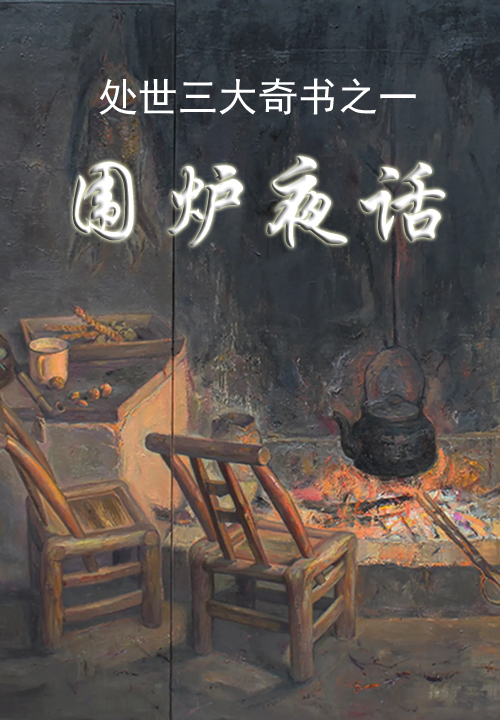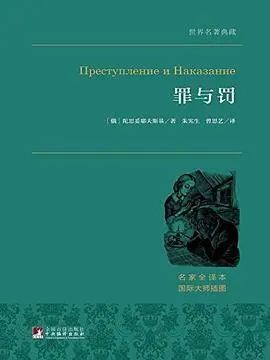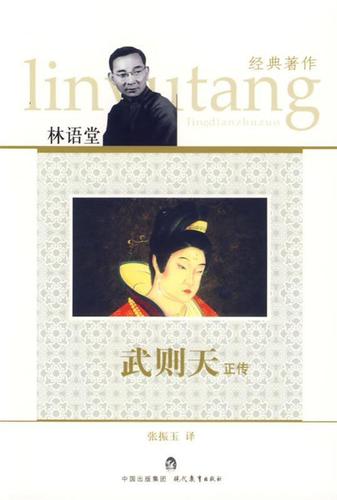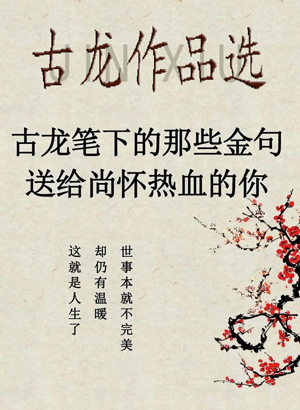What are the convulsions of a city in comparison with the insurrections of the soul? Man is a depth still greater than the people. Jean Valjean at that very moment was the prey of a terrible upheaval. Every sort of gulf had opened again within him. He also was trembling, like Paris, on the brink of an obscure and formidable revolution. A few hours had sufficed to bring this about. His destiny and his conscience had suddenly been covered with gloom. Of him also, as well as of Paris, it might have been said: "Two principles are face to face. The white angel and the black angel are about to seize each other on the bridge of the abyss. Which of the two will hurl the other over? Who will carry the day?"
On the evening preceding this same 5th of June, Jean Valjean, accompanied by Cosette and Toussaint had installed himself in the Rue de l'Homme Arme. A change awaited him there.
Cosette had not quitted the Rue Plumet without making an effort at resistance. For the first time since they had lived side by side, Cosette's will and the will of Jean Valjean had proved to be distinct, and had been in opposition, at least, if they had not clashed. There had been objections on one side and inflexibility on the other. The abrupt advice: "Leave your house," hurled at Jean Valjean by a stranger, had alarmed him to the extent of rendering him peremptory. He thought that he had been traced and followed. Cosette had been obliged to give way.
Both had arrived in the Rue de l'Homme Arme without opening their lips, and without uttering a word, each being absorbed in his own personal preoccupation; Jean Valjean so uneasy that he did not notice Cosette's sadness, Cosette so sad that she did not notice Jean Valjean's uneasiness.
Jean Valjean had taken Toussaint with him, a thing which he had never done in his previous absences. He perceived the possibility of not returning to the Rue Plumet, and he could neither leave Toussaint behind nor confide his secret to her. Besides, he felt that she was devoted and trustworthy. Treachery between master and servant begins in curiosity. Now Toussaint, as though she had been destined to be Jean Valjean's servant, was not curious. She stammered in her peasant dialect of Barneville: "I am made so; I do my work; the rest is no affair of mine."
In this departure from the Rue Plumet, which had been almost a flight, Jean Valjean had carried away nothing but the little embalmed valise, baptized by Cosette "the inseparable." Full trunks would have required porters, and porters are witnesses. A fiacre had been summoned to the door on the Rue de Babylone, and they had taken their departure.
It was with difficulty that Toussaint had obtained permission to pack up a little linen and clothes and a few toilet articles. Cosette had taken only her portfolio and her blotting-book.
Jean Valjean, with a view to augmenting the solitude and the mystery of this departure, had arranged to quit the pavilion of the Rue Plumet only at dusk, which had allowed Cosette time to write her note to Marius. They had arrived in the Rue de l'Homme Arme after night had fully fallen.
They had gone to bed in silence.
The lodgings in the Rue de l'Homme Arme were situated on a back court, on the second floor, and were composed of two sleeping-rooms, a dining-room and a kitchen adjoining the dining-room, with a garret where there was a folding-bed, and which fell to Toussaint's share. The dining-room was an antechamber as well, and separated the two bedrooms. The apartment was provided with all necessary utensils.
People re-acquire confidence as foolishly as they lose it; human nature is so constituted. Hardly had Jean Valjean reached the Rue de l'Homme Arme when his anxiety was lightened and by degrees dissipated. There are soothing spots which act in some sort mechanically on the mind. An obscure street, peaceable inhabitants. Jean Valjean experienced an indescribable contagion of tranquillity in that alley of ancient Paris, which is so narrow that it is barred against carriages by a transverse beam placed on two posts, which is deaf and dumb in the midst of the clamorous city, dimly lighted at mid-day, and is, so to speak, incapable of emotions between two rows of lofty houses centuries old, which hold their peace like ancients as they are. There was a touch of stagnant oblivion in that street. Jean Valjean drew his breath once more there. How could he be found there?
His first care was to place the inseparable beside him.
He slept well. Night brings wisdom; we may add, night soothes. On the following morning he awoke in a mood that was almost gay. He thought the dining-room charming, though it was hideous, furnished with an old round table, a long sideboard surmounted by a slanting mirror, a dilapidated arm-chair, and several plain chairs which were encumbered with Toussaint's packages. In one of these packages Jean Valjean's uniform of a National Guard was visible through a rent.
As for Cosette, she had had Toussaint take some broth to her room, and did not make her appearance until evening.
About five o'clock, Toussaint, who was going and coming and busying herself with the tiny establishment, set on the table a cold chicken, which Cosette, out of deference to her father, consented to glance at.
That done, Cosette, under the pretext of an obstinate sick headache, had bade Jean Valjean good night and had shut herself up in her chamber. Jean Valjean had eaten a wing of the chicken with a good appetite, and with his elbows on the table, having gradually recovered his serenity, had regained possession of his sense of security.
While he was discussing this modest dinner, he had, twice or thrice, noticed in a confused way, Toussaint's stammering words as she said to him: "Monsieur, there is something going on, they are fighting in Paris." But absorbed in a throng of inward calculations, he had paid no heed to it. To tell the truth, he had not heard her. He rose and began to pace from the door to the window and from the window to the door, growing ever more serene.
With this calm, Cosette, his sole anxiety, recurred to his thoughts. Not that he was troubled by this headache, a little nervous crisis, a young girl's fit of sulks, the cloud of a moment, there would be nothing left of it in a day or two; but he meditated on the future, and, as was his habit, he thought of it with pleasure. After all, he saw no obstacle to their happy life resuming its course. At certain hours, everything seems impossible, at others everything appears easy; Jean Valjean was in the midst of one of these good hours. They generally succeed the bad ones, as day follows night, by virtue of that law of succession and of contrast which lies at the very foundation of nature, and which superficial minds call antithesis. In this peaceful street where he had taken refuge, Jean Valjean got rid of all that had been troubling him for some time past. This very fact, that he had seen many shadows, made him begin to perceive a little azure.To have quitted the Rue Plumet without complications or incidents was one good step already accomplished. Perhaps it would be wise to go abroad, if only for a few months, and to set out for London. Well, they would go. What difference did it make to him whether he was in France or in England, provided he had Cosette beside him? Cosette was his nation. Cosette sufficed for his happiness; the idea that he, perhaps, did not suffice for Cosette's happiness, that idea which had formerly been the cause of his fever and sleeplessness, did not even present itself to his mind. He was in a state of collapse from all his past sufferings, and he was fully entered on optimism. Cosette was by his side, she seemed to be his; an optical illusion which every one has experienced. He arranged in his own mind, with all sorts of felicitous devices, his departure for England with Cosette, and he beheld his felicity reconstituted wherever he pleased, in the perspective of his revery.
As he paced to and fro with long strides, his glance suddenly encountered something strange.
In the inclined mirror facing him which surmounted the sideboard, he saw the four lines which follow:--
"My dearest, alas! my father insists on our setting out immediately. We shall be this evening in the Rue de l'Homme Arme, No. 7. In a week we shall be in England. COSETTE. June 4th."
Jean Valjean halted, perfectly haggard.
Cosette on her arrival had placed her blotting-book on the sideboard in front of the mirror, and, utterly absorbed in her agony of grief, had forgotten it and left it there, without even observing that she had left it wide open, and open at precisely the page on which she had laid to dry the four lines which she had penned, and which she had given in charge of the young workman in the Rue Plumet. The writing had been printed off on the blotter.
The mirror reflected the wriing.
The result was, what is called in geometry, the symmetrical image; so that the writing, reversed on the blotter, was righted in the mirror and presented its natural appearance; and Jean Valjean had beneath his eyes the letter written by Cosette to Marius on the preceding evening.
It was simple and withering.
Jean Valjean stepped up to the mirror. He read the four lines again, but he did not believe them. They produced on him the effect of appearing in a flash of lightning. It was a hallucination, it was impossible. It was not so.
Little by little, his perceptions became more precise; he looked at Cosette's blotting-book, and the consciousness of the reality returned to him. He caught up the blotter and said: "It comes from there." He feverishly examined the four lines imprinted on the blotter, the reversal of the letters converted into an odd scrawl, and he saw no sense in it. Then he said to himself: "But this signifies nothing; there is nothing written here." And he drew a long breath with inexpressible relief. Who has not experienced those foolish joys in horrible instants? The soul does not surrender to despair until it has exhausted all illusions.
He held the blotter in his hand and contemplated it in stu pid delight, almost ready to laugh at the hallucination of which he had been the dupe. All at once his eyes fell upon the mirror again, and again he beheld the vision. There were the four lines outlined with inexorable clearness. This time it was no mirage. The recurrence of a vision is a reality; it was palpable, it was the writing restored in the mirror. He understood.
Jean Valjean tottered, dropped the blotter, and fell into the old arm-chair beside the buffet, with drooping head, and glassy eyes, in utter bewilderment. He told himself that it was plain, that the light of the world had been eclipsed forever, and that Cosette had written that to some one. Then he heard his soul, which had become terrible once more, give vent to a dull roar in the gloom. Try then the effect of taking from the lion the dog which he has in his cage!
Strange and sad to say, at that very moment, Marius had not yet received Cosette's letter; chance had treacherously carried it to Jean Valjean before delivering it to Marius. Up to that day, Jean Valjean had not been vanquished by trial. He had been subjected to fearful proofs; no violence of bad fortune had been spared him; the ferocity of fate, armed with all vindictiveness and all social scorn, had taken him for her prey and had raged against him. He had accepted every extremity when it had been necessary; he had sacrificed his inviolability as a reformed man, had yielded up his liberty, risked his head, lost everything, suffered everything, and he had remained disinterested and stoical to such a point that he might have been thought to be absent from himself like a martyr. His conscience inured to every assault of destiny, might have appeared to be forever impregnable. Well, any one who had beheld his spiritual self would have been obliged to concede that it weakened at that moment. It was because, of all the tortures which he had undergone in the course of this long inquisition to which destiny had doomed him, this was the most terrible. Never had such pincers seized him hitherto. He felt the mysterious stirring of all his latent sensibilities. He felt the plucking at the strange chord. Alas! The supreme trial, let us say rather, the only trial, is the loss of the beloved being.
Poor old Jean Valjean certainly did not love Cosette otherwise than as a father; but we have already remarked, above, that into this paternity the widowhood of his life had introduced all the shades of love; he loved Cosette as his daughter, and he loved her as his mother, and he loved her as his sister; and, as he had never had either a woman to love or a wife, as nature is a creditor who accepts no protest, that sentiment also, the most impossible to lose, was mingled with the rest, vague, ignorant, pure with the purity of blindness, unconscious, celestial, angelic, divine; less like a sentiment than like an instinct, less like an instinct than like an imperceptible and invisible but real attraction; and love, properly speaking, was, in his immense tenderness for Cosette, like the thread of gold in the mountain, concealed and virgin.
Let the reader recall the situation of heart which we have already indicated. No marriage was possible between them; not even that of souls; and yet, it is certain that their destinies were wedded. With the exception of Cosette, that is to say, with the exception of a childhood, Jean Valjean had never, in the whole of his long life, known anything of that which may be loved. The passions and loves which succeed each other had not produced in him those successive green growths, tender green or dark green, which can be seen in foliage which passes through the winter and in men who pass fifty. In short, and we have insisted on it more than once, all this interior fusion, all this whole, of which the sum total was a lofty virtue, ended in rendering Jean Valjean a father to Cosette. A strange father, forged from the grandfather, the son, the brother, and the husband, that existed in Jean Valjean; a father in whom there was included even a mother; a father who loved Cosette and adored her, and who held that child as his light, his home, his family, his country, his paradise.
Thus when he saw that the end had absolutely come, that she was escaping from him, that she was slipping from his hands, that she was gliding from him, like a cloud, like water, when he had before his eyes this crushing proof: "another is the goal of her heart, another is the wish of her life; there is a dearest one, I am no longer anything but her father, I no longer exist"; when he could no longer doubt, when he said to himself: "She is going away from me!" the grief which he felt surpassed the bounds of possibility. To have done all that he had done for the purpose of ending like this! And the very idea of being nothing! Then, as we have just said, a quiver of revolt ran through him from head to foot. He felt, even in the very roots of his hair, the immense reawakening of egotism, and the _I_ in this man's abyss howled.
There is such a thing as the sudden giving way of the inward subsoil. A despairing certainty does not make its way into a man without thrusting aside and breaking certain profound elements which, in some cases, are the very man himself. Grief, when it attains this shape, is a headlong flight of all the forces of the conscience. These are fatal crises. Few among us emerge from them still like ourselves and firm in duty. When the limit of endurance is overstepped, the most imperturbable virtue is disconcerted. Jean Valjean took the blotter again, and convinced himself afresh; he remained bowed and as though petrified and with staring eyes, over those four unobjectionable lines; and there arose within him such a cloud that one might have thought that everything in this soul was crumbling away.
He examined this revelation, athwart the exaggerations of revery, with an apparent and terrifying calmness, for it is a fearful thing when a man's calmness reaches the coldness of the statue.
He measured the terrible step which his destiny had taken without his having a suspicion of the fact; he recalled his fears of the preceding summer, so foolishly dissipated; he recognized the precipice, it was still the same; only, Jean Valjean was no longer on the brink, he was at the bottom of it.
The unprecedented and heart-rending thing about it was that he had fallen without perceiving it. All the light of his life had departed, while he still fancied that he beheld the sun.
His instinct did not hesitate. He put together certain circumstances, certain dates, certain blushes and certain pallors on Cosette's part, and he said to himself: "It is he."
The divination of despair is a sort of mysterious bow which never misses its aim. He struck Marius with his first conjecture. He did not know the name, but he found the man instantly. He distinctly perceived, in the background of the implacable conjuration of his memories, the unknown prowler of the Luxembourg, that wretched seeker of love adventures, that idler of romance, that idiot, that coward, for it is cowardly to come and make eyes at young girls who have beside them a father who loves them.
After he had thoroughly verified the fact that this young man was at the bottom of this situation, and that everything proceeded from that quarter, he, Jean Valjean, the regenerated man, the man who had so labored over his soul, the man who had made so many efforts to resolve all life, all misery, and all unhappiness into love, looked into his own breast and there beheld a spectre, Hate.
Great griefs contain something of dejection. They discourage one with existence. The man into whom they enter feels something within him withdraw from him. In his youth, their visits are lugubrious; later on they are sinister. Alas, if despair is a fearful thing when the blood is hot, when the hair is black, when the head is erect on the body like the flame on the torch, when the roll of destiny still retains its full thickness, when the heart, full of desirable love, still possesses beats which can be returned to it, when one has time for redress, when all women and all smiles and all the future and all the horizon are before one, when the force of life is complete, what is it in old age, when the years hasten on, growing ever paler, to that twilight hour when one begins to behold the stars of the tomb?
While he was meditating, Toussaint entered. Jean Valjean rose and asked her:--
"In what quarter is it? Do you know?"
Toussaint was struck dumb, and could only answer him:--
"What is it, sir?"
Jean Valjean began again: "Did you not tell me that just now that there is fighting going on?"
"Ah! Yes, sir," replied Toussaint. "It is in the direction of Saint-Merry."
There is a mechanical movement which comes to us, unconsciously, from the most profound depths of our thought. It was, no doubt, under the impulse of a movement of this sort, and of which he was hardly conscious, that Jean Valjean, five minutes later,found himself in the street.
Bareheaded, he sat upon the stone post at the door of his house. He seemed to be listening.
Night had come.
一个城市的痉挛和灵魂的惊骇比较起来,算得了什么?人心的深度,大于人民。冉阿让这时的心正受着骇人的折磨。旧日的危崖险谷又一一重现在他眼前。他和巴黎一样,正在一次惊心动魄、吉凶莫测的革命边缘上战栗。几个钟头已足够使他的命运和心境突然陷在黑影中。对于他,正如对巴黎,我们不妨说,两种思潮正在交锋。白天使和黑天使即将在悬崖顶端的桥上进行肉搏。两个中的哪一个会把另一个摔下去呢?谁会胜利呢?
在六月五日这天的前夕,冉阿让在珂赛特和杜桑的陪同下迁到了武人街。一场急剧的转变正在那里候着他。
珂赛特在离开卜吕梅街以前,不是没有试图阻扰。自从他俩一道生活以来,在珂赛特的意愿和冉阿让的意愿之间出现分歧,这还是第一次,虽说没有发生冲突,却至少有了矛盾。一方面是不愿迁,一方面是非迁不可。一个不认识的人突然向他提出“快搬家”的劝告,这已够使他提心吊胆,把他变成坚持己见无可通融的了。他以为自己的隐情已被人家发觉,并有人在追捕他。珂赛特便只好让步。
他们在去武人街的路上,彼此都咬紧了牙没说一句话,各人想着各自的心事。冉阿让忧心如焚,看不见珂赛特的愁苦,珂赛特愁肠寸断,也看不见冉阿让的忧惧。
冉阿让带着杜桑一道走,这是他以前离家时,从来不曾做过的。他估计他大致不会再回到卜吕梅街去住了,他既不能把她撇下不管,也不能把自己的秘密说给她听。他觉得她是忠实可靠的,仆人对主人的出卖往往开始于爱管闲事。而杜桑不爱管闲事,好象她生来就是为冉阿让当仆人的。她口吃,说的是巴恩维尔农村妇人的土话,她常说:“我是一样一样的,我拉扯我的活,尾巴不关我事。”(“我就是这个样子,我干我的活,其余的事与我无关。”)
这次离开卜吕梅街几乎是仓皇出走,冉阿让只携带那只香气扑鼻、被珂赛特惯常称为“寸步不离”的小提箱,其他的东西全没带。如果要搬装满东西的大箱子,就非得找搬运行的经纪人不可,而经纪人也就是见证人。他们在巴比伦街雇了一辆街车便这样走了。
杜桑费了大劲才得到许可,包了几件换洗衣服、裙袍和梳妆用具。珂赛特本人只带了她的文具和吸墨纸。
冉阿让为了尽量掩人耳目,避免声张,还作了时间上的安排,不到天黑不走出卜吕梅街的楼房,这就让珂赛特有时间给马吕斯写那封信。他们到达武人街时天已完全黑了。
大家都静悄悄地睡了。
武人街的那套住房是对着后院的,在第一层楼上有两间卧室,一间餐室和一间与餐室相连的厨房,还带一间斜顶小屋子,里面有张吊床,也就是杜桑的卧榻。那餐室同时也是起坐间,位于两间卧室之间。整套住房里都配备了日用必需的家庭用具。
人会莫名其妙地无事自扰,也会莫名其妙地无故自宽,人的性情生来便是这样。冉阿让迁到武人街不久,他的焦急心情便已减轻,并且一步一步消失了。某些安静的环境仿佛能影响人的精神状态。昏暗的街,平和的住户,冉阿让住在古老巴黎的这条小街上,感到自己也好象受了宁静气氛的感染,小街是那么狭窄,一块固定在两根柱子上的横木板,挡住了车辆,在城市的喧闹中寂静无声,大白天也只有昏黄的阳光,两排年逾百岁的高楼,有如衰迈的老人,寂然相对,似乎可以说在这种环境中,人们的感情已失去了激动的能力。在这条街上人们健忘,无所思也无所忆。冉阿让住在这里只感到心宽气舒。能有办法把他从这地方找出来吗?
他最关心的第一件事便是把那“寸步不离”的东西放在自己的手边。
他安安稳稳地睡了一夜。常言道,黑夜使人清醒,我们不妨加这么一句,黑夜使人心安。第二天早晨,他醒来时几乎是欢快的。那间餐室原是丑陋不堪的,摆了一张旧圆桌、一口上面斜挂着镜子的碗橱,一张有虫蛀的围椅和几把靠背椅,椅上堆满了杜桑的包袱,冉阿让见了这样一间屋子却感到它美。有个包袱开着一条缝,露出了冉阿让的国民自卫军制服。
至于珂赛特,她仍待在她的卧室里,让杜桑送了一盆肉汤给她,直到傍晚才露面。
杜桑为了这次小小的搬家,奔忙了一整天,将近五点钟时,她在餐桌上放了一盘凉鸡,珂赛特为了表示对她父亲的恭顺,才同意对它看了一眼。
这样做过以后,珂赛特便借口头痛得难受,向冉阿让道了晚安,缩到她卧房里去了。冉阿让津津有味地吃了一个鸡翅膀,吃过以后,他肘端支在桌上,心情渐渐开朗,重又获得了他的安全感。
他在吃这顿简朴的晚饭时,曾两次或三次模模糊糊听到杜桑对他唠叨道:“先生,外面热闹着呢,巴黎城里打起来了。”但是他心里正在想东想西,没有过问这些事。说实在的,他并没有听。
他立起来,开始从窗子到门,又从门到窗子来回走动,心情越来越平静了。
在这平静的心境中,他的思想又回到了珂赛特棗这个唯一使他牵肠挂肚的人的身上。他挂念的倒不是她的头痛,头痛只是神经上的一点小毛病,姑娘们爱闹的闲气,暂时出现的乌云,过一两天就会消散的,这时他想着的是将来的日子,并且,和平时一样,他一想到这事,心里总有点乐滋滋的。总之,他没有发现他们恢复了的幸福生活还会遇到什么阻扰,以至不能继续下去。有时,好象一切全不可能,有时又好象一切都顺利,冉阿让这时正有那种事事都能如愿以偿的快感。这样的乐观思想经常是继苦恼时刻而来的,正如黑夜过后的白天。这原是自然界固有的正反轮替规律,也就是浅薄的人所说的那种对比方法。冉阿让躲在这条僻静的街巷中,渐渐摆脱了近来使他惶惑不安的种种苦恼。他所想象的原是重重黑暗,现在却开始望见了霁色晴光。这次能平安无事地离开卜吕梅街已是一大幸事。出国到伦敦去待一些时候,哪怕只去待上几个月,也许是明智的。待在法国或待在英国,那有什么两样?只要有珂赛特在身边就可以了。珂赛特便是他的国家。珂赛特能保证他的幸福。至于他,他能不能保证珂赛特的幸福呢?这在过去原是使他焦虑失眠的问题,现在他却丝毫没有想到这件事。他从前感到的种种痛苦已全部烟消云散,他这时的心境是完全乐观的。在他看来,珂赛特既在他身边,她便是归他所有的了,把表象当实质,这是每个人都有过的经验。他在心中极其轻松愉快地盘算着带着珂赛特去英国,通过他幻想中的图景,他见到他的幸福在任何地方都是可能的。
他正在缓步来回走动,他的视线忽然触到一件奇怪东西。
在碗橱前面,他看见那倾斜在橱上的镜子清晰地映着这样的几行字:
我心爱的,真不巧,我父亲要我们立刻离开此地。今晚我们住在武人街七号。八天内我们去伦敦。珂赛特。六月四日。
冉阿让一下子被惊到发了呆。
珂赛特昨晚一到家,便把她的吸墨纸簿子放在碗橱上的镜子跟前,她当时正愁苦欲绝,也就把它丢在那里忘了,甚至没有注意到是她让它开着摊在那里的,并且摊开的那页,又恰巧是她在卜吕梅街写完那几行字以后用来吸干纸上墨汁的那一页。这以后她才让那路过卜吕梅街的青年工人去投送。信上的字迹全印在那页吸墨纸上了。
镜子又把字迹反映出来。
结果产生了几何学中所说的那种对称的映象,吸墨纸上的字迹在镜子里反映成原形,出现在冉阿让眼前的正是珂赛特昨晚写给马吕斯的那封信。
这是非常简单而又极其惊人的。
冉阿让走向那面镜子。他把这几行字重读了一遍,却不敢信以为真。他仿佛看见那些字句是从闪电的光中冒出来的。那是一种幻觉。那是不可能的。那是不存在的。
慢慢地,他的感觉变得比较清晰了。他望着珂赛特的那本吸墨纸,逐渐恢复了他的真实感。他把吸墨纸拿在手里,并说道:“那是从这儿来的。”他非常激动地细看吸墨纸上的那几行字迹,感到那些反过来的字母的形象好不拙劣奇怪,实在是任何含义也看不出来。于是他对自己说:“不过这并不说明什么,这并不能成为文字。”他深深地吐了一口气,感到胸中有说不出的舒畅。在惊骇慌乱的时刻谁又不曾有过这种盲目的欢快呢?在幻想还没有完全破灭时,灵魂是不会向失望投降的。
他拿着那吸墨纸,不断地看,呆头呆脑地感到幸运,几乎笑了出来,说自己竟会受到错觉的愚弄。忽然,他的眼睛又落在镜面上,又看见了镜中的反映。几行字在镜子里毫不留情地显得清清楚楚,这一下可不能再认为是错觉了。一错再错的错觉也只能是真实,这是摸得着瞧得见的,这是在镜子里反映出来的手书文字。他明白了。
冉阿让打了个趔趄,吸墨纸也跌落了,他瘫倒在碗橱旁的破旧围椅里,低垂着脑袋,眼神沮丧,茫然不知如何是好。他对自己说,这已经是明摆着的了,在这世界上,从此不会再见到阳光了,那肯定是珂赛特写给某人的了。他听到他的灵魂,暴跳如雷,又在黑暗中哀号怒吼。你去把落在狮子笼里的爱犬夺回来吧!
可怪又可叹的是,这时马吕斯还没有收到珂赛特的信,偶然的机缘却把信中消息在马吕斯知道以前,便阴错阳差地泄露给了冉阿让。
冉阿让直到目前为止还不曾在考验面前摔过交。他经受过可怕的试探,受尽了逆境的折磨,法律的迫害,社会的无情遗弃,命运的残暴,都曾以他为目标,向他围攻过,他却从不曾倒退或屈服。在必要时,他也接受过穷凶极恶的暴行,他牺牲过他已恢复的人身不可侵犯性,放弃过他的自由,冒过杀头的危险,丧失了一切,忍受了一切,成了一个刻苦自励、与世无争的人,以致有时人们认为他和殉教者一样无私无我。他的良心,在经受种种苦难的千磨百炼以后好象已是无懈可击的了,可是,如果有谁洞察他的心灵深处,就不能不承认,他的心境,此时此刻,是不那么坦然的。
这是因为他在命运对他进行多次审讯时所遭受的种种酷刑,目前的这次拷问才是最可怕的。他从来还没有遇到过这种夹棍的压榨。他感到最深挚的情感也在暗中游离。他感到了有生以来从未尝过的那种心碎肠断的惨痛。唉,人生最严峻的考验,应当说,唯一的严峻考验,便是眼睁睁望着即将失去的心爱的人儿。
当然,可怜的老冉阿让对珂赛特的爱,只是父女之爱,但是,我们在前面已经指出过,在这种父爱中,也掺进了因他那无亲无偶的处境而产生的其他的爱,他把珂赛特当作女儿爱,也把她当作母亲爱,也把她当作妹子爱,并且,由于他从不曾有过情妇,也从不曾有过妻室,由于人的生性象个不愿接受拒绝支付证书的债权人,他的这种情感棗一种最最牢不可破的情感棗便也搀和在其他一些朦胧、昏昧、纯洁、盲目、无知、天真、超卓如天使、圣洁如天神的情感中,说那是情感,却更象是本能,说它是本能,却又更象是魅力,那是分辨不出瞧不见的,然而却是真实的,那种爱,确切地说,是蕴藏在他对珂赛特所怀的那种深广无际的慈爱中的,正如蕴藏在深山中的那种不见天日、未经触动的金矿脉一样。
请读者回忆一下我们已经指出过的这种心境。在他们之间是不可能有什么结合的,甚至连灵魂的结合也不可能,而他们却又相依为命。除了珂赛特,也就是说,除了一个孩子,冉阿让在他这一生的漫长岁月中再也不知道有什么可以爱。对一般五十左右的人来说,谁都有那种继炽热的恋情而起的爱,正如入冬的树叶,由嫩绿转为暗绿,冉阿让的心中却不曾有过这种变化。总之,我们已不止一次地谈到过,这种内心的契合,这个由高贵品德凝成的整体,只能使冉阿让成为珂赛特的父亲。这父亲是由冉阿让生而固有的祖孙之爱、父女之爱、兄妹之爱、夫妇之爱铸成的,父爱之中甚至还有母爱,这父亲爱珂赛特,并且崇拜她,把这孩子当作光明,当作安身之处,当作家庭,当作祖国,当作天堂。
因此,当他看见这一切都要破灭,她要溜走,她要从他手中滑脱,她要逃避,一切已如烟云,一切已成泡影,摆在他眼前的是这样一种锥心刺骨的局面:她的心已有所属,她已把她的终身幸福托给了另一个人,她已有了心爱的对象,而我只是个父亲了,我不再存在了。当他已不能再有所怀疑,当他对自己说“她撇下我的心要远走高飞了”,这时他感到的痛苦确已超过可能忍受的限度。想当初他是怎样尽心竭力,到头来却落得这么个结果!并且,还有什么可说的!一场空!在这当口,正如我们刚才说过的,他愤激到从头到脚浑身发抖。他从头发根里也感到他从前的那种强烈的唯我主义思想已在苏醒活动。
“我”又在这人的心灵深处哀号。
内心的崩塌是常有的。自认确已走上绝路的思想,一经侵入心中,必然会坼裂并摧毁这人心灵中的某些要素,而这些要素又往往就是他本人自己。当痛苦已到这种程度,良心的力量便会一败涂地。这儿便是生死存亡的关键时刻。在我们中能岿然不动,坚持正见,度过难关的人是不多的。不能战胜痛苦,便不能保全令德。冉阿让重又拿起那吸墨纸,想再证实一下,那几行字毕竟是无可否认的,他低着头,瞪着眼,呆着不动,脑子里烟雾腾腾,思想一片混乱,看来这人的内心世界已全部坍陷了。
他在浮想的夸大力量的支配下,研究着这次的暴露,他外表静得可怕,因为当人静到象塑像那样冷时,那是可怕的。
他衡量着他的命运在他不知不觉中迈出的那惊人的一步,他回忆起去年夏季他有过的那次疑惧,好不容易才消释,他这次又见到了那种危崖绝壁,还是那样,不过冉阿让已不再是在洞口,而是到了洞底。
情况是前所未闻并令人痛心的。他毫无所知,便落到洞底。他生命的光全熄灭了,他永不会重见天日了。
他本能地感觉到,他把某几次情景、某些日期、珂赛特脸上某几回的红晕、某几回的苍白连系起来进行分析,并对自己说:“就是他了。”失望中的猜测是一种百发百中的神矢。他一猜便猜到了马吕斯。他还不知道这个名字,但已找到了这个人。在他那记忆力的毫不留情的追溯中,他一清二楚地看见了那个在卢森堡公园里跟踪的可疑的陌生人,那个想吃天鹅肉的癞虾蟆,那个吊儿郎当的闲汉,那个蠢材,那个无赖,因为只有无赖才会走来对着有父亲爱护陪伴的姑娘挤眉弄眼。
当他明白在这件事的背后有这么个小伙子在作怪以后,他,冉阿让,这个曾狠下工夫来改造自己的灵魂,尽过最大努力来使自己一生中受到的一切苦难和一切不平的待遇都化为仁爱,也让自己得以从新做人的人,现在反顾自己的内心,却看见一个鬼物:憎恨。
大的痛苦能使人一蹶不振。它使人悲观绝望。遭受极大痛苦的人会感到有某种东西又回到自己心中。人在少壮时巨大的痛苦使他悲伤,而到了晚年它能置人于死地。唉,当血还是热的,头发还是黑的,头颅还能象火炬的火焰那样直立在肩上,命运簿还没有翻上几页,仍剩下一大沓,心里还充满爱的倾慕,心的跳动也还能在别人心里引起共鸣,还有悔过自新后的前途,女人也都还在对自己笑盈盈,前程远大,视野辽阔,生命力还完全充沛,这时如果失望是件可怕的事,那么,在岁月飞驰,人已老去,黄昏渐近,残照益微,暮色苍茫,墓上星光已现时失望又会是什么?
当他凝想时杜桑进来了。冉阿让立了起来,问她说:
“是靠哪面?您知道吗?”
杜桑,愣住了,只能这样回答:
“请问是……”
冉阿让又说:
“您先头不是对我说,打起来了吗?”
“啊!对,先生,”杜桑回答说,“是靠圣美里那面。”
我们最隐秘的思想常在我们不知不觉中驱使我们作出某种机械活动,正是由于这种活动的作用,冉阿让才会在没有十分意识到的情况下,五分钟过后去到了街上。
他光着头,坐在家门口的护墙石礅上。他好象是在静听。
天已经黑了。







